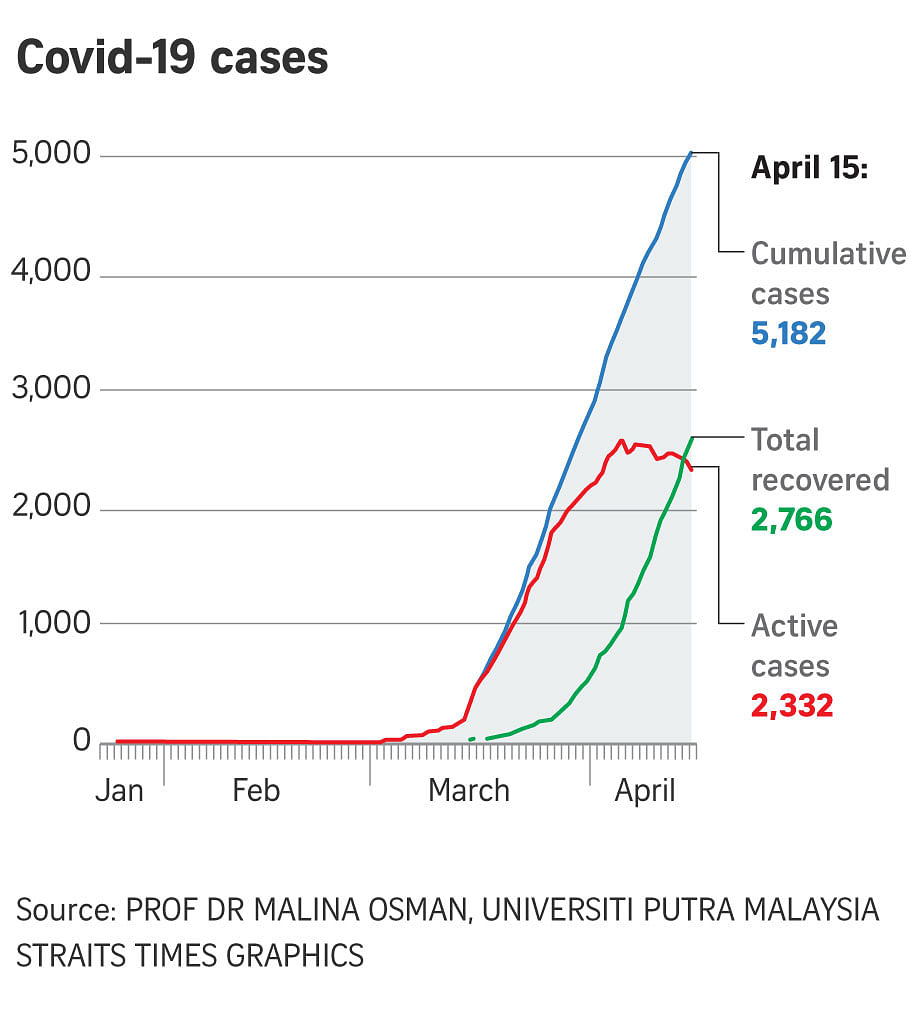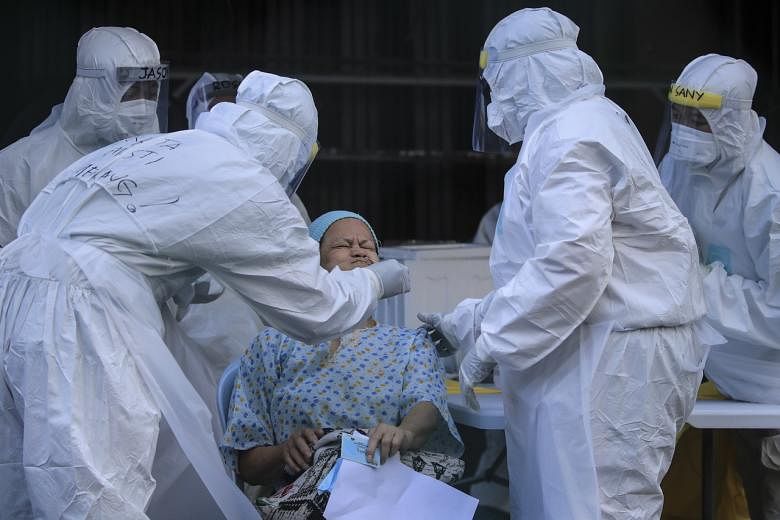KUALA LUMPUR - The number of active coronavirus cases in Malaysia has dropped, offering hope that its movement restrictions have helped to curb infections while allowing hospitals to focus on treatment.
Active infections have not hit the predicted peak that research houses forecast earlier, with recoveries now accounting for 53 per cent of total 5,182 cases.
Malaysia also recorded its lowest number of new cases in a month on Wednesday (April 15) - at 85, after previously recording triple digits daily for the past month.
On Thursday (April 16), the country reported 110 new cases and 119 patients discharged - the fourth consecutive day when discharged patients exceeded new cases.
"We are taking a focused approach (by zooming in) on location, high-risk groups and the 28 clusters," said the Health Ministry's director-general, Datuk Noor Hisham Abdullah, on Thursday.
On Wednesday, Dr Hisham said spikes in new cases seen in the past month were due to the ministry's concerted efforts with contact tracing and testing in communities with high number of cases.
"In localities that are hot spots, we conducted active case detection, testing, observation and treatment, and we are able to successfully detect positive cases," said Dr Noor Hisham.
Just last month, JP Morgan predicted in a report that Malaysia's Covid-19 infections would hit the peak in mid-April with 6,300 infections.
The Malaysian Institute of Economic Research also forecast infections to peak in mid-April, with over 5,000 active cases.
Malaysia has 2,332 active cases as of Thursday, the 30th day of the movement control order (MCO).
Local health experts are crediting the government's efforts in limiting mobility, swift contract tracing and total lockdowns in hot spots as factors in the declining rate of existing cases.
"Since MCO was implemented, the maximum number of daily active cases was 2,596, on April 5. The trend has since showed declining pattern, with more recovered cases compared to average new cases," said Prof Dr Malina Osman, medical epidemiologist and biostatistician at Universiti Putra Malaysia.
Malaysia has also dramatically increased its testing capacity, having gone from 3,000 tests a day in the early days of the outbreak to 11,500 tests daily. The health ministry is looking to ramp up testing to hit 16,500 tests daily this month.
Due to a global shortage of testing kits and reagents, the health ministry is limiting mass testing to residents within places or residential buildings that are under complete lockdown - or what the government termed as "enhanced MCO".

But health experts argue that if and when possible, mass testing should be done to determine the breadth of infections and also allow healthy individuals to head back to work, giving companies the chance to resume operations.
"If we want to have a good handle on how widespread is the infection, we have no other choice but to do massive and aggressive screening," said Universiti Malaya's virologist Prof Dr Sazaly Abu Bakar, adding that scaling up tests to 30,000 daily is necessary.
Dr Khoo Yoong Khean, managing editor of The Malaysian Medical Gazette - an online hub for medical professionals - said that with Covid-19, countries are constantly playing catch-up, given the two-week incubation period for symptoms to arise.
"We need to get ahead of the outbreak and I think increasing testing is one way, using technology like South Korea or Singapore is another," he said.
South Korea, for example, uses a phone's location tracker to raise alarm if people leave their quarantine zones.












